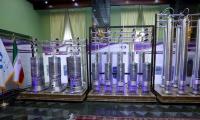Islamabad : Gastroenterology Department of Pakistan Institute of Medical Sciences has treated as many as 210 patients with the history of ingestion of corrosive substances in last one year and alarming is the fact that the number of cases of corrosive intake is on the rise for the last few years.
Data collected by ‘The News’ has revealed that most of the patients reached PIMS with the history of ingestion of corrosive substances were young adults and many of them reported at PIMS after narrowing of oesophagus, the muscular tube that connects throat (Pharynx) with the stomach.
We had to perform endoscopies in almost all cases to check lesions in oesophagus, food pipe and stomach and it was found that 90 per cent of all patients had multiple ulcers and all patients had narrowed oesophagus after four weeks of corrosive intake, said Deputy Director at PIMS Dr. Waseem Ahmed Khawaja while talking to ‘The News’.
Dr. Khawaja who was part of the team of doctors that performed endoscopies of the patients said the narrowing of oesophagus was diagnosed through endoscopies and doctors had to use dilators to dilate oesophageal narrowing.
It is important that ingestion of corrosive substances may cause severe to serious injuries of the upper gastrointestinal tract and the poisoning can even result in death. Acute corrosive intoxications pose a major problem in clinical toxicology since the most commonly affected population are the young with psychic disorders, suicidal intent and alcohol addiction.
Studies reveal that oral intoxication with corrosive agents occurs by ingestion of: acids (hydrochloric, acetic, sulphuric, lactic, oxalic, carbolic), alkalis (sodium and potassium, soaps, detergents), heavy metal salts (sublimate), formalin, iodine tincture and many other chemical substances.
Dr. Khawaja said most of the patients who reached PIMS with corrosive intake were operated but many of them reached hospital after two months because of difficulty in eating due to narrowing of oesophagus.
The patients reached PIMS with corrosive intake were from 15 years of age to 25 years of age and 75 per cent of the patients were females while 25 per cent males, he said. He added most of the patients had socioeconomic causes and were suffering from tension and depression.
Majority of patients reached PIMS from Rawalakot, Kotli Satyan, Rawalpindi and Islamabad, said Dr. Khawaja. Endoscopies were done by Dr. Mashood, Dr. Imran, Dr. Amir and Dr Waseem Khawaja.
Vice-Chancellor of Allama Iqbal Open University , Professor Dr Nasir Mahmood, addresses an event on December 27, 2024....
In this image Senator Captain Shaheen Khalid Butt assumes a role as the Managing Director of Pakistan Bait-ul-Mal on...
School students at Thaddrell School, Empress Road, in Lahore attend a class on November 20, 2024. —APPIslamabad:The...
An Airbus plane of Uzebkistan air company "Uzbekistan Airways". — Uzbekistan Airways/FileIslamabad:Uzbekistan’s...
The artists present Jhomar dance on the beat of the drum in relation to the Punjab Culture Day at the Arts Council....
An employee of state-run Islamabad Electric Supply Company , takes a meter reading with his smartphone at a commercial...







